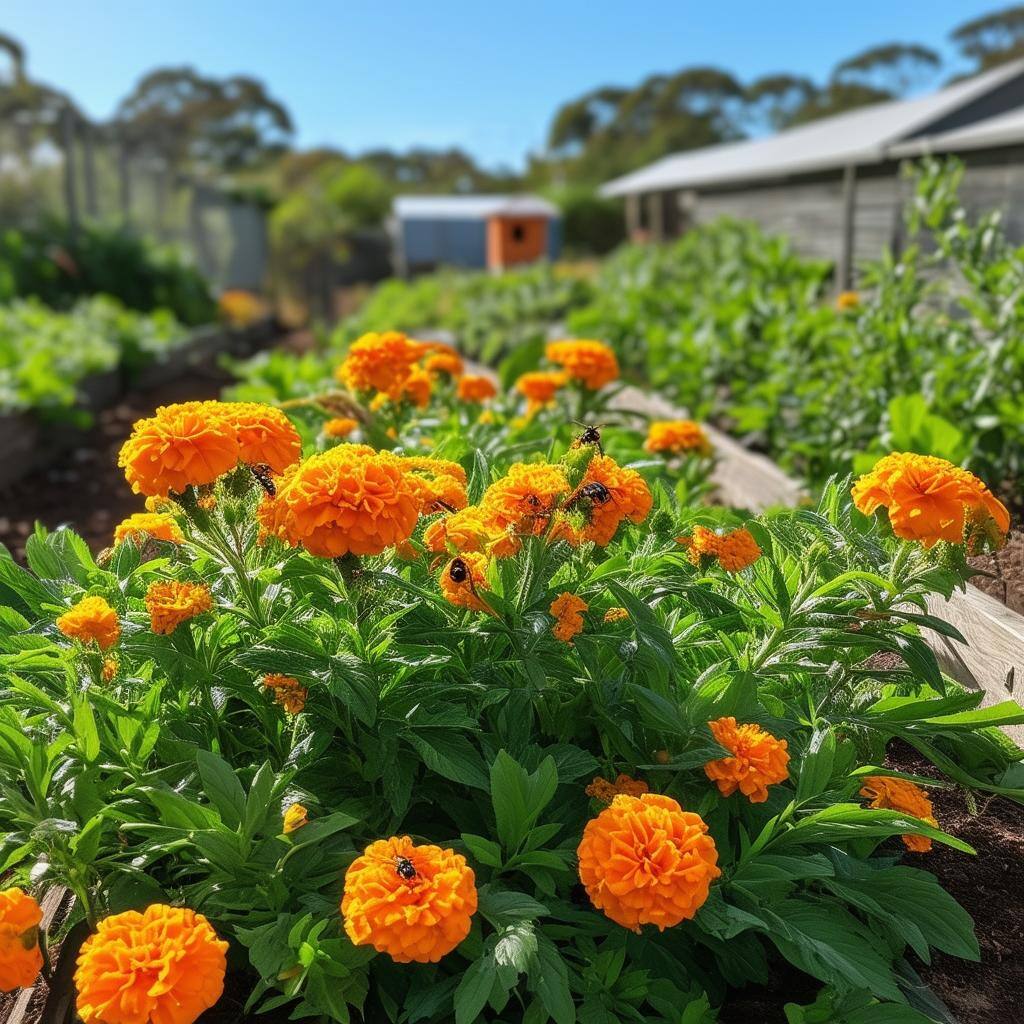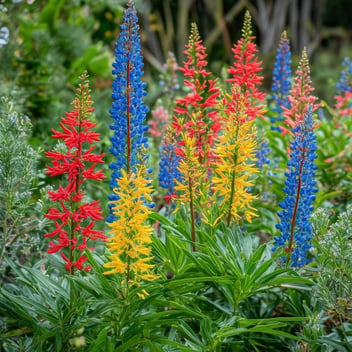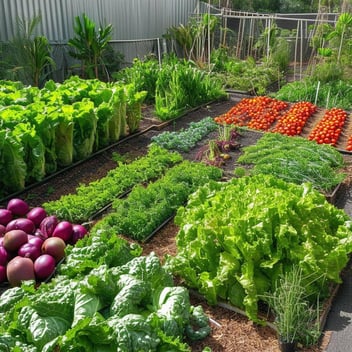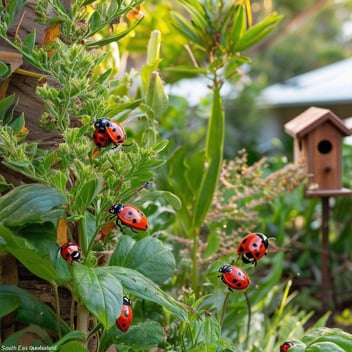Organic Pest Control Solutions for South East Queensland Gardens
-
Introduction
Gardening in South East Queensland's subtropical climate presents unique challenges, particularly in managing pests that thrive in warm, humid conditions. Embracing organic pest control methods not only safeguards your garden's health but also promotes environmental sustainability.
-
Understanding Common Garden Pests in South East Queensland
-
Aphids
These small, sap-sucking insects can cause significant damage by transmitting plant diseases and deforming new growth.
-
Caterpillars
The larvae of various moths and butterflies, caterpillars voraciously consume foliage, potentially defoliating entire plants if left unchecked.
-
Whiteflies
Tiny, winged insects that feed on plant sap, leading to weakened plants and the spread of viral diseases.
-
Slugs and Snails
Mollusks that prefer moist environments, feeding on a wide range of plants and leaving behind unsightly holes and slime trails.
-
-
Cultural Practices for Pest Prevention
-
Crop Rotation
Alternating plant families in your garden beds each season disrupts pest life cycles and reduces the likelihood of infestations.
-
Proper Spacing and Pruning
Ensuring adequate spacing and regular pruning enhances air circulation, reducing humidity levels that attract pests and fostering healthier plant growth.
-
Soil Health Management
Maintaining fertile, well-draining soil supports robust plants that are more resistant to pest pressures.
-
-
Biological Controls: Harnessing Nature's Allies
-
Beneficial Insects
Introducing predatory insects such as ladybugs, lacewings, and parasitic wasps can naturally suppress pest populations.
-
Companion Planting
Strategically planting species that repel pests or attract beneficial insects enhances your garden's resilience. For example, marigolds emit compounds that deter aphids and nematodes.
-
-
Organic Pesticides: Safe and Effective Options
-
Neem Oil
Derived from the neem tree, this oil disrupts insect hormone systems, deterring feeding and reproduction.
-
Diatomaceous Earth
A natural powder composed of fossilized algae, it abrades the exoskeletons of insects like slugs and snails, causing desiccation. Apply carefully to avoid harming beneficial insects.
-
Homemade White Oil
A mixture of vegetable oil and dish soap, white oil suffocates soft-bodied insects such as aphids and scale. Apply during cooler parts of the day to prevent plant burn.
-
-
Physical Barriers and Traps
-
Row Covers
Lightweight fabrics that shield plants from insect pests while allowing sunlight and moisture to penetrate.
-
Beer Traps for Slugs and Snails
Bury shallow containers filled with beer at soil level; the scent attracts these pests, leading to their drowning.
-
Sticky Traps
Brightly colored, adhesive-coated cards that capture flying insects like whiteflies and aphids, reducing their numbers.
-
-
Monitoring and Early Intervention
-
Regular Inspections
Frequently examine plants for signs of pest activity, such as chewed leaves, discoloration, or the presence of insects.
-
Manual Removal
Handpicking pests like caterpillars and slugs can be effective, especially in small gardens.
-
Encouraging Natural Predators
Providing habitats, such as birdhouses or water sources, attracts predators that help control pest populations.
-
-
Conclusion
Implementing organic pest control strategies tailored to South East Queensland's unique environment fosters a healthy, productive garden. By combining cultural practices, biological controls, organic pesticides, and vigilant monitoring, gardeners can effectively manage pests while promoting ecological balance and sustainability.




